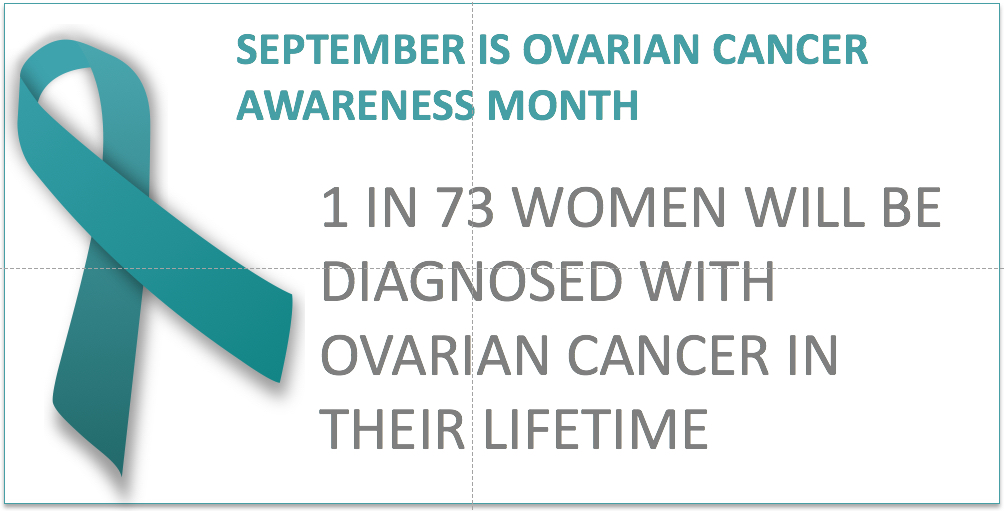While undergoing a routine check up, the doctor presses on your lower abdomen and asks you if you feel any pain. He or she may be looking for ovarian cysts, small collections of fluid within the ovaries. Ovarian cysts don’t always indicate ovarian cancer, but they can, especially after menopause.
During the menstrual cycle, ovaries will frequently develop benign cysts, called functional cysts. In fact, you may not even know you have them. Cysts can range from no symptoms at all, to severe pain.
These cysts can also be part of other conditions, like endometriosis, which is not ovarian cancer, but rather another reproductive system disorder that occurs when the lining of the uterus grows in other places as well.
In cases where symptoms are not noticeable or barely noticeable, cysts can be very difficult to diagnose. Women experiencing subtle symptoms report feeling gassy, lower abdominal pressure, or urinating more than normal. Some women also experience changes in bowel movements, or small changes in their gastrointestinal tract with benign or cancerous cysts.
When ovarian cysts are painful, they are easier to spot, but this is rare. Significant symptoms can include:
- Sore breasts
- Weight gain
- Difficulty urinating
- Pain in the abdominal area, pelvis, the low back, and the thighs
- Difficulty urinating
- Painful intercourse and menstruation
- Bleeding abnormalities
Most simple cysts are not cause for alarm and rarely develop into ovarian cancer. However, for women who have undergone menopause — typically between the ages of 50 and 70 — cysts are more likely to be ovarian cancer. A good rule of thumb is for anyone in that age group, or anyone with symptoms of an ovarian cyst that doesn’t go away, to be tested to determine if the cyst is cancerous. In menopausal women, these symptoms are not expected, so women experiencing them should consult their doctor.
A number of tests can be performed to determine if the cyst is cancerous or benign. An ultrasound is usually done first. A laparoscopic surgical procedure, in which a tiny camera is inserted into the area through small abdominal incisions, can also be done to see and remove the ovarian cyst. A blood test, MRI (magnetic resonance imaging) test, a pelvic exam and even a pregnancy test can give health professionals clues as to what type of cysts you have.
Most importantly for anyone with persistent symptoms is to mention them to their doctor. Treatment could be as simple as keeping an eye on it, or as serious as surgery to remove the cyst. Being aware of ovarian cysts and working with your doctor to monitor them can help protect you against ovarian cancer.
Azsunshinegirl, aka Lynette Summerill, is an award-winning journalist who lives in Scottsdale, Arizona. In addition to writing about cancer-related issues, she writes a blog, Nonsmoking Nation, which follows global tobacco news and events.






Add a Comment2 Comments
I recommed that with any cyst the entire ovary be removed by a GYN ONC surgeon! My doctor thought "it was just a cyst" but when she attempted to remove it, she spread the cancer and now i am dying. Regular gynecologists just don't think much about Ovarian cancer.. Very bad indeed!
October 5, 2009 - 5:48amThis Comment
Wow, Anon, what a terrible thing to have had happen to you. That's awful. For those who aren't sure what she means, there are special surgeons that are "gynecologic oncologist" surgeons. When you are diagnosed with ovarian cysts that need to be surgically removed, you may want to get a second opinion from a GYN ONC surgeon.
Of course not all cysts are cancerous. In fact, most are ultimately harmless, though they may cause pain and discomfort. But Anon makes a good point -- unless your gynecologist has special training in this area, she or he may miss something.
Here's our EmpowHer page on ovarian cysts:
https://www.empowher.com/media/reference/ovarian-cyst#definition
And here's the Mayo Clinic page on them:
http://www.mayoclinic.com/health/ovarian-cysts/DS00129
Anon, my sympathies for what you are going through. We would very much like to hear more about your journey if you care to write about it.
October 6, 2009 - 8:15amThis Comment